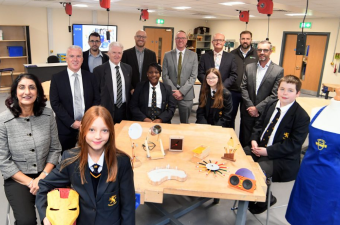In a rapidly changing professional environment, lifelong learning is key to maintaining competitiveness and promoting career development. Continuously updating and expanding knowledge and skills helps individuals adapt to new challenges and seize new opportunities.In this rapidly changing era, with its ever-evolving technology, information updates, and increasingly fierce social competition, lifelong learning has become increasingly important, whether for career development or personal growth. Learning and work are closely linked, complementing and promoting each other. Learning is for better work, and work is for better learning. In modern society, learning and work have become indispensable parts of people's lives. Lifelong learning can help us continuously broaden our horizons, enhance our confidence, increase self-satisfaction, and ultimately gain deeper meaning in our personal lives.

- Adapting to Industry Changes: As technology and the market continue to evolve, lifelong learning helps individuals adapt to these changes.
- Enhancing Professional Skills: Continuously acquiring new skills and knowledge can improve work efficiency and professional competence.
- Career Development Opportunities: Learning new areas of expertise can open up new career paths and opportunities for advancement.
- Broadening Career Scope: By acquiring new knowledge and skills, we can broaden our career scope and expand our career options. This not only opens up more career possibilities but also improves our professional competitiveness.
- Improved Career Status: As we accumulate knowledge and skills, our position in the workplace will gradually rise. We may be offered higher positions, greater responsibilities, and better compensation and benefits.
- Realized Personal Value: Through continuous learning and growth, we can realize our personal value and make greater contributions to society and our organizations. This sense of accomplishment and satisfaction is an indispensable source of motivation for career development.
- Set Learning Goals: Define your learning goals, create a plan, and consistently follow up.
- Leverage Online Resources: Utilize online courses, educational platforms, and other resources for flexible learning.
- Attend Industry Conferences and Seminars: Communicate with industry experts and learn about the latest trends.
- Read Professional Books and Articles: Read regularly to stay informed about industry dynamics.
- Practice and Application: Apply what you learn to real-world situations. Practice is the best way to validate your learning.

- Set Learning Goals:
Learning is not just about "learning" for the sake of learning, but about having clear goals. You can set short-term and long-term learning goals based on your interests, career development, or personal needs. Setting goals makes learning more targeted and effective.
- Cultivate a Habit of Continuous Learning:
Learning is not a momentary impulse, but a habit that requires long-term persistence. You can schedule fixed times for learning every day, or create a weekly learning plan to ensure continuous learning in your daily life.
- Utilize Multiple Learning Methods:
With the development of the internet, learning is no longer limited to traditional classroom education. You can learn through online courses, video lectures, reading books, participating in discussions, and many other methods. Combining multiple methods can help you understand knowledge and skills more comprehensively.
- Learn from Life:
Learning is not limited to academic and professional skills. You can accumulate life wisdom by observing and experiencing every detail of life. By communicating with people from different backgrounds and listening to their perspectives and experiences, you will find yourself constantly learning and growing.







